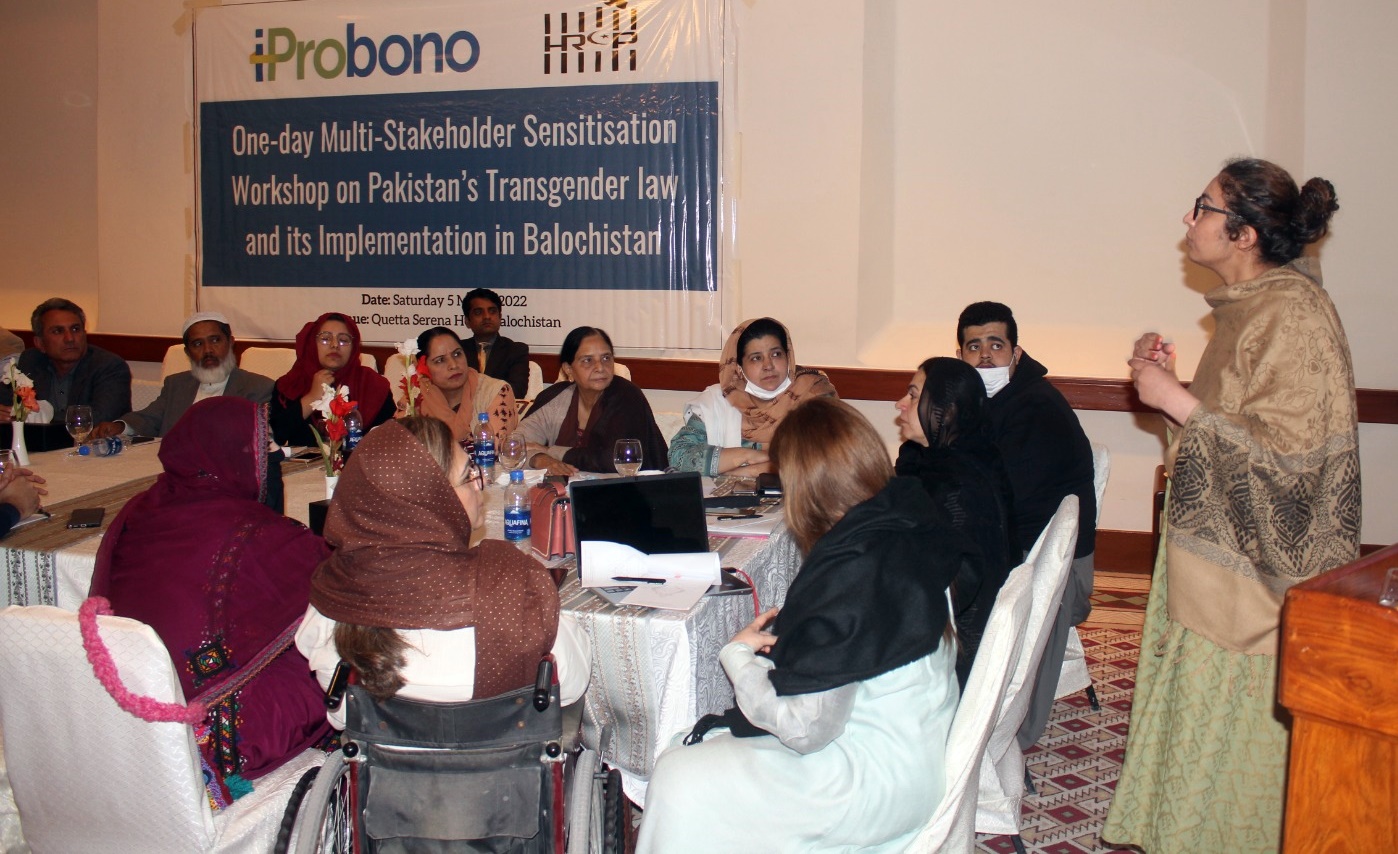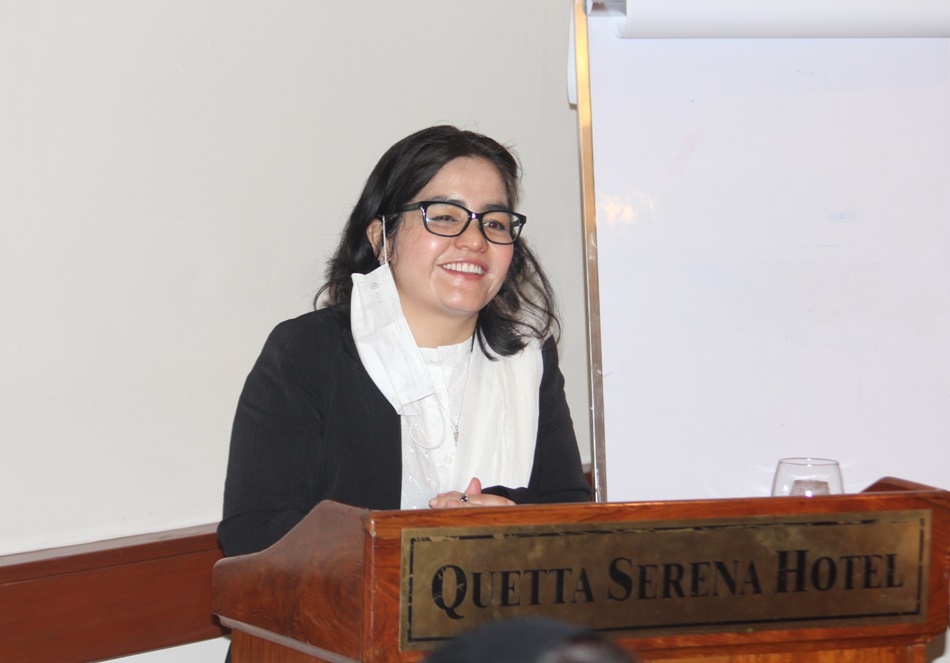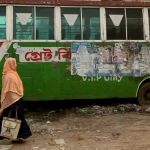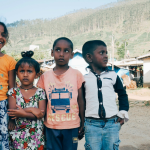‘Women are victims of gender abuse and harassment, but at least the law and society address their concerns, but we trans people have no such support from the law or society.’
– Anmol, Trans student, University of Balochistan.
‘There are no medical facilities for trans people, no HIV awareness or testing services are available in the province.’
– Nadeem, Trans Local TV Actor.
Human rights violations and discrimination based on gender identification continue to be widespread in Pakistan, constituting a serious challenge for the country. The transgender community and other marginalised minorities face substantially more stigma, discrimination, and violence than non-marginalised groups. In Balochistan, the community confronts multiple layers of prejudice, including being from poor, tribal, conservative, less educated, or refugee backgrounds.
Jalila Haider, iProbono’s Pakistan Country Representative organised a multi-stakeholder sensitisation workshop on Pakistan’s Transgender Law and its implementation in Balochistan on March 5, 2022. This workshop was held in collaboration with the Human Rights Commission of Pakistan to:
- Understand the challenges faced by the transgender community in Balochistan.
- Establish a pressure group of members from various schools of thought and civil society in order to encourage lawmakers to introduce provincial legislation to protect the rights of the community.

The event saw participation from members of the transgender community, lawyers, police, journalists, university professors, members of political parties, religious scholars, social and human rights activists, and government officers.
Workshop participants concluded that :
- Transgender and intersex individuals deserve equal and human rights as the rest of the population.
- The transgender community is absolutely invisible in the literature due to society’s complete denial that transgender and intersex persons exist as human beings in our culture.
- Pakistan’s government should take steps to protect the community from all forms of violence, harassment, and discrimination.
- There should be a 5% quota declared for the transgender community in government services and educational scholarships.
- They should also be supplied with a particular identification card or credentials, as well as equal access to health care and shelter facilities.
- Non-governmental organisations and the government should collaborate to create training institutes for the transgender community, and
- A specific cell should be established in prisons, police stations, and courts to address the issues faced by community members.
iProbono is planning further consultations and advocacy throughout the year to take this work forward.

Jalila was hopeful that ‘If the Provincial Government uses all of its resources in partnership with civil society and uses our recommendations to introduce a provincial transgender law and policy with full implementing mechanism, we will be able to achieve the goal of a trans-friendly society in Balochistan.’
For more information on iProbono’s work with transgender communities in Pakistan, please contact Jalila and Naima Ahmed, Legal Officer, Pakistan. You can also read about our work on Equality Law in South Asia in the publication, Beyond Gender.







